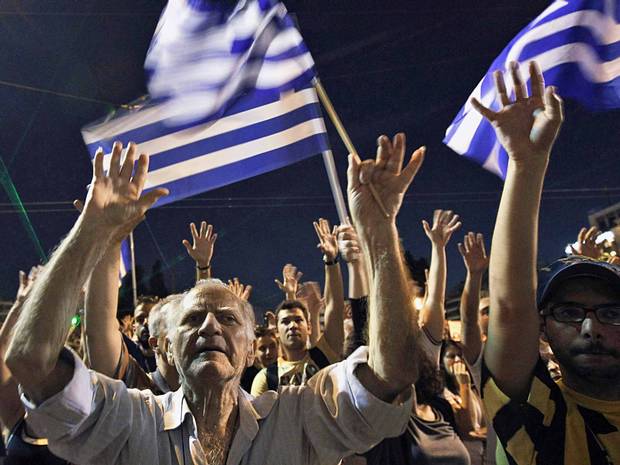by Maye Kabil: Greeks rejected austerity conditions of a rescue package from creditors last Sunday, throwing the future of the country’s Eurozone membership into further doubt and deepening a deadlock with lenders.
Many uncertainties are raised after this referendum, regarding the future of the Eurozone and its currency, the nature of the relation between debtors and creditors, and how all of this would be reflected in global economy, which is just getting out of its crisis in recent years.
Because of these doubts about stock markets were affected by Greece crisis all over the world. The slide of oil prices were among these consequences, which creates an additional pressure on oil exporting countries, like gulf countries.
Gulf equities slipped in response to the slide in oil prices, as Brent crude dropped below $60 a barrel to its lowest since mid-April, and to unstable global markets after the Greeks’ vote.
The financial group EFG Hermes said in a comment that MENA market and GCC markets will continue to be volatile this week because of uncertainty created by the Greek government’s referendum call, and the ECB’s decision to cap assistance to
Greek banks.
Weaker oil prices will link the Greek crisis to MENA markets: Europe’s recovery must be in question while private sector uncertainty is high and European governments are still advocating austerity, as Hermes says. GCC equity markets will be sensitive to oil price moves for as long as oil is trading close to budget breakeven for many countries.
In three days oil prices lost more than 3 dollars for barrel, which means a lot of losses for oil exporting countries.
Greece is not the first country to stop paying its debts, or decide to abolish it. Several examples are found in history as experts explain. In the 20th century many cases for abolishing debts were present either with or without conditions, like Germany after the World War, Egypt in the early 90s, and Iraq after 2003.
